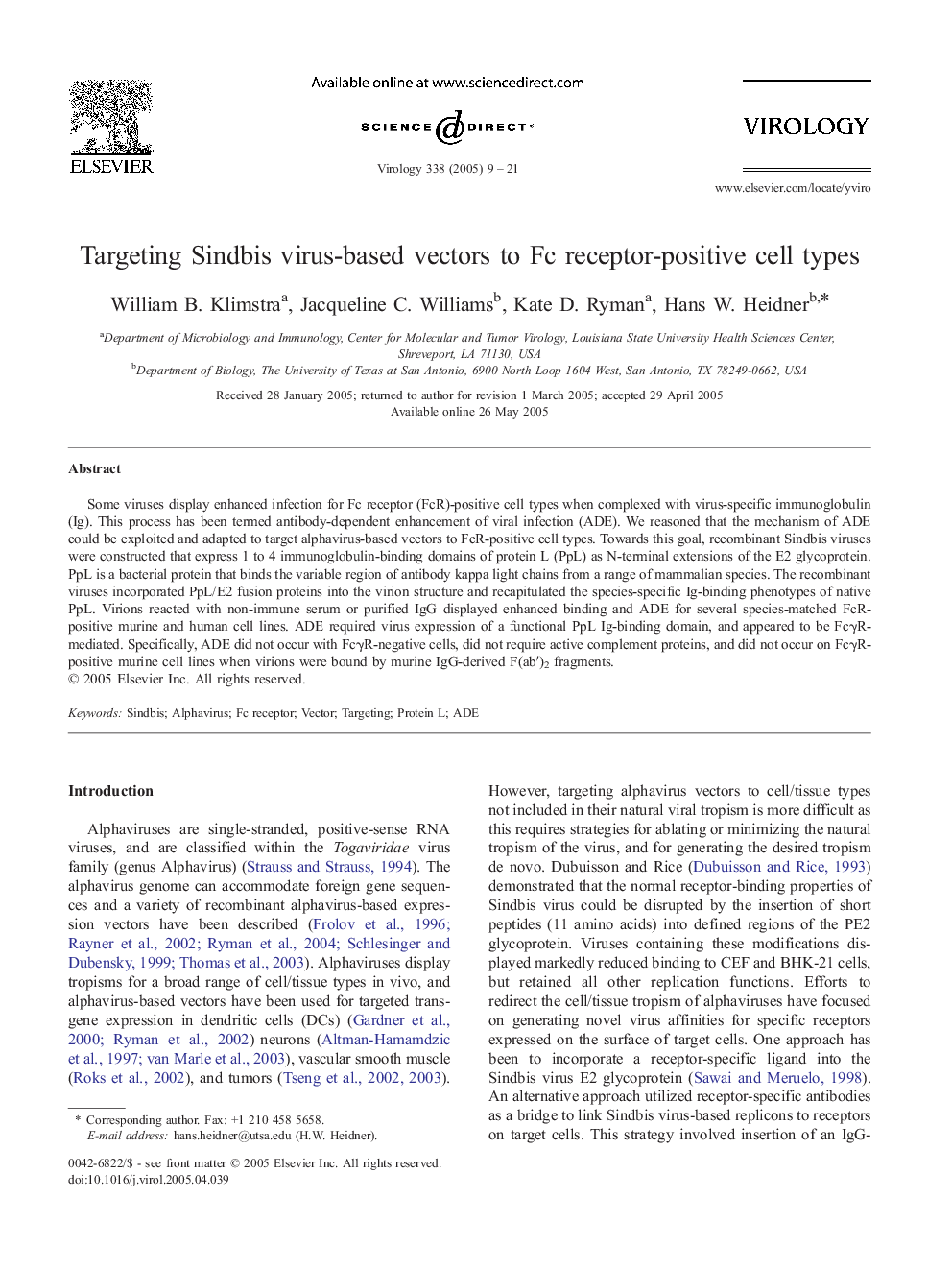| Article ID | Journal | Published Year | Pages | File Type |
|---|---|---|---|---|
| 9286889 | Virology | 2005 | 13 Pages |
Abstract
Some viruses display enhanced infection for Fc receptor (FcR)-positive cell types when complexed with virus-specific immunoglobulin (Ig). This process has been termed antibody-dependent enhancement of viral infection (ADE). We reasoned that the mechanism of ADE could be exploited and adapted to target alphavirus-based vectors to FcR-positive cell types. Towards this goal, recombinant Sindbis viruses were constructed that express 1 to 4 immunoglobulin-binding domains of protein L (PpL) as N-terminal extensions of the E2 glycoprotein. PpL is a bacterial protein that binds the variable region of antibody kappa light chains from a range of mammalian species. The recombinant viruses incorporated PpL/E2 fusion proteins into the virion structure and recapitulated the species-specific Ig-binding phenotypes of native PpL. Virions reacted with non-immune serum or purified IgG displayed enhanced binding and ADE for several species-matched FcR-positive murine and human cell lines. ADE required virus expression of a functional PpL Ig-binding domain, and appeared to be FcγR-mediated. Specifically, ADE did not occur with FcγR-negative cells, did not require active complement proteins, and did not occur on FcγR-positive murine cell lines when virions were bound by murine IgG-derived F(abâ²)2 fragments.
Related Topics
Life Sciences
Immunology and Microbiology
Virology
Authors
William B. Klimstra, Jacqueline C. Williams, Kate D. Ryman, Hans W. Heidner,
